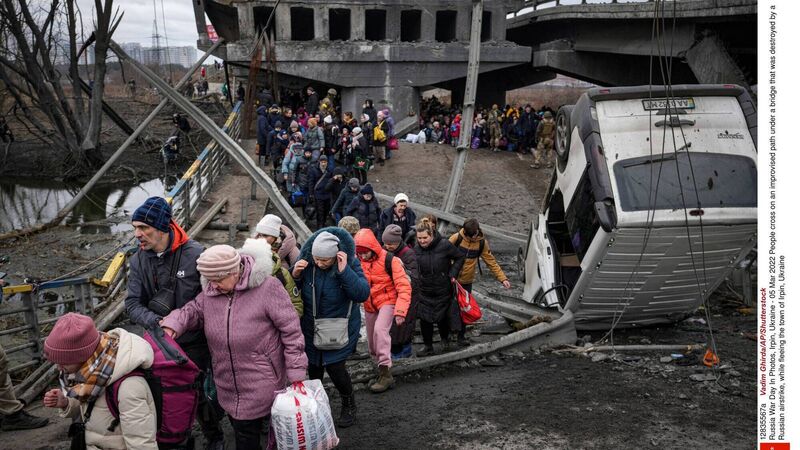EU and US talk of ending Russian oil imports

People cross on an improvised path under a bridge that was destroyed by a Russian airstrike, while fleeing the town of Irpin, Ukraine.
The United States said it is exploring options with its European partners on banning Russian oil imports while maintaining steady supplies globally.
The US Secretary of State Antony Blinken said yesterday they were in very active discussions about banning oil imports following the invasion of Ukraine. Blinken made the comments while on a trip across Europe to coordinate with allies against the invasion. Oil prices have soared over the past week following the sanctions imposed on Russia that have also put an end to plans for a second natural gas pipeline between Russia and Germany.











